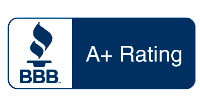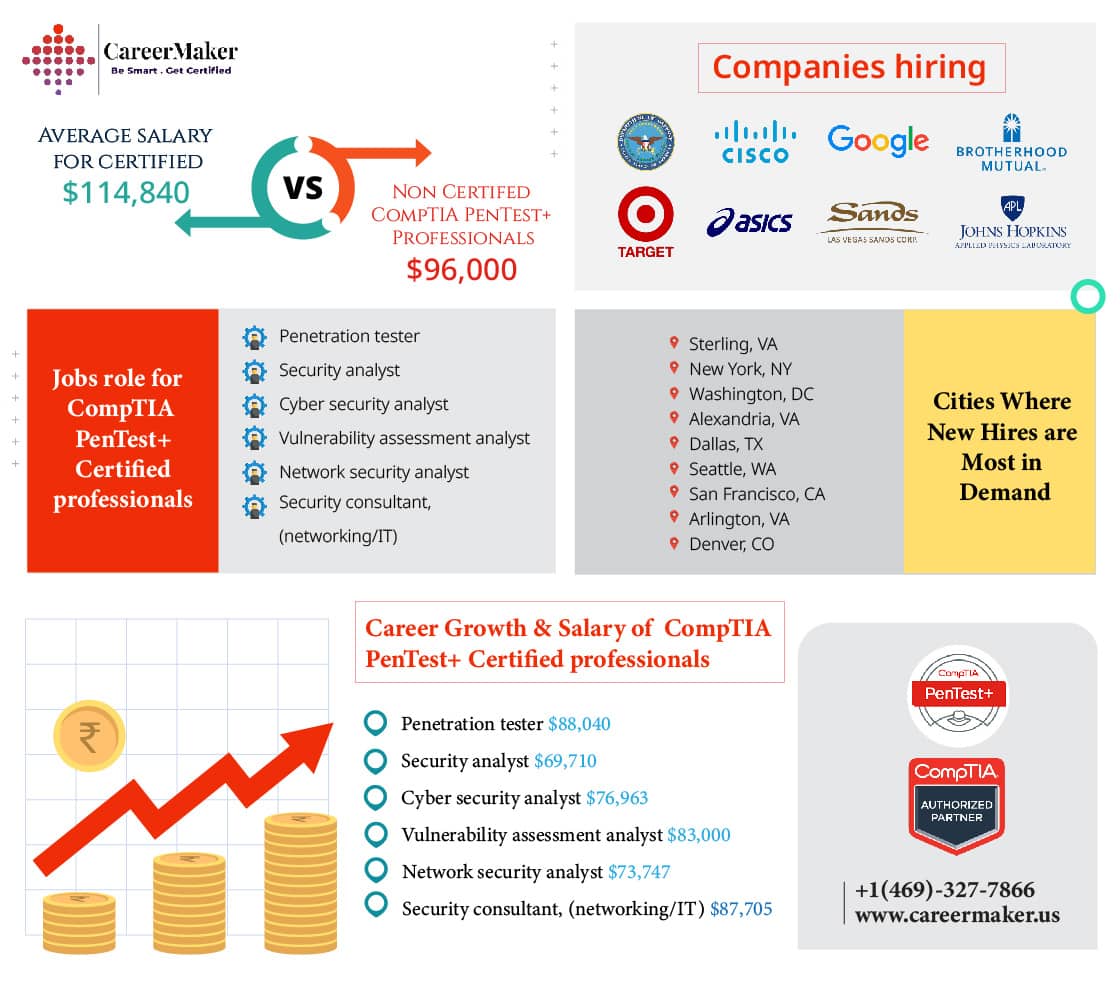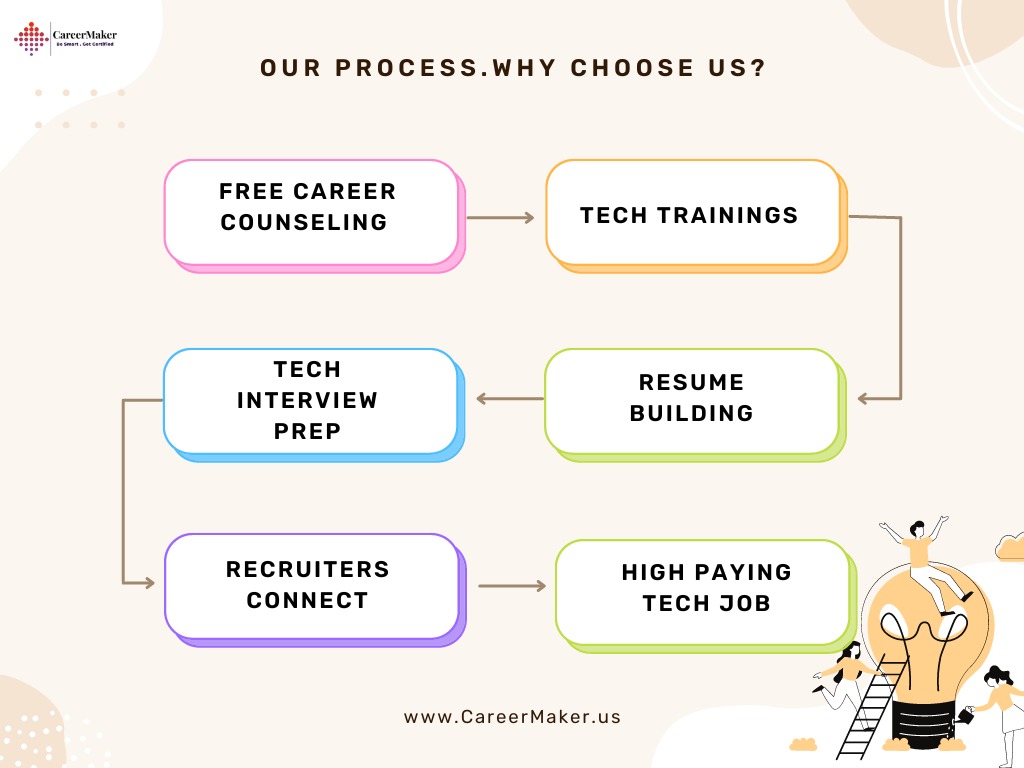CompTIA PenTest+ Certification Training
Are you interested in the exciting field of Penetration Testing? At CareerMaker, we offer comprehensive CompTIA PenTest+ certification training designed to help you master the art of penetration testing and advance your career in cybersecurity. Our training program is specifically tailored to provide you with the knowledge and practical expertise required to succeed in the dynamic world of Penetration Testing.
The most thorough exam, encompassing every level of penetration testing, is CompTIA PenTest+ certification Training course employs both performance-based and knowledge-based questions to ensure that all stages are covered, in contrast to other penetration testing tests that only cover a section of stages with essay questions and hands-on.
Years in IT training industry
IT professional Trained
Countries
Bootcamps
- TRUSTED BY -










- CompTIA Pentest+ COURSE HIGHLIGHTS -

The ability to do penetration testing is an emerging skill set that is growing in value to the organizations seeking protection and in value to those who possess these skills as organizations scurry to defend themselves and their customers against privacy or security breaches. With CareerMaker’s CompTIA-certified PenTest+ training, you can be sure that you have the knowledge and abilities necessary to:
- Prepare a penetration testing engagement plan.
- Recognize statutory and regulatory requirements
- Utilize the proper tools and techniques to conduct vulnerability scanning and penetration testing and then evaluate the results.
- Create a written report outlining suggested remediation methods effectively inform the management team of the findings and offer helpful recommendations.
- Upcoming Live BOOTCAMP CALENDAR -
Schedule of Classes
| 07:00 AM-11:00 AM(CST) | Weekend Morning | FEB 24 2024- MARCH 24 2024 | Live Online | ENROLL NOW | INQUIRY NOW |
| 07:00 PM-11:00 PM(CST) | Weekend Evening | FEB 24 2024- MARCH 24 2024 | Live Online | ENROLL NOW | INQUIRY NOW |
| 10:00 AM to 06:00PM(CST) | Weekdays | FEB 26 2024- MARCH 01 2024 | Live Online | ENROLL NOW | INQUIRY NOW |
August 19 2023- September 17 2023
August 19 2023- September 17 2023
August 21 2023- August 25 2023
-CompTIA PenTest+ Certification Course Description -
The CompTIA PenTest+ course provides a comprehensive overview of penetration testing techniques and methodologies, equipping professionals with the skills needed to identify and address vulnerabilities in network environments. This certification focuses on assessing and improving the security posture of organizations through hands-on assessments.
The CompTIA PenTest+ course prepares professionals to perform penetration testing, vulnerability assessments, and security assessments for organizations. Through real-world scenarios and practical labs, participants gain hands-on experience in identifying and exploiting vulnerabilities.
This certification validates your ability to evaluate the security of systems and networks and contribute to enhancing an organization's overall security posture
- Penetration Testers
- Security Analysts
- Ethical Hackers
- Network and Systems Administrators
- Security Consultants
- IT Professionals
- Information Security Managers
- Cybersecurity Enthusiasts
- Security Engineers
- Anyone Interested in Security Testing
Pre-requisites for CompTIA PenTest+ Certification:
- While there are no strict prerequisites for CompTIA PenTest+, it is advisable to have a background of at least three-to-four years in hands-on information security or a related field before attempting the exam. CompTIA PenTest+ is designed to be pursued after completing CompTIA Security+ or having equivalent experience, emphasizing technical and hands-on proficiency
Exam Code | PT0-002 |
Launch Date | October 28, 2021 |
Exam Description | The CompTIA PenTest+ will certify the successful candidate has the knowledge and skills required to plan and scope a penetration testing engagement including vulnerability scanning, understand legal and compliance requirements, analyze results, and produce a written report with remediation techniques. |
Number of Questions | Maximum of 85 questions |
Type of Questions | Performance-based and multiple choice |
Length of Test | 165 minutes |
Passing Score | 750 (on a scale of 100-900) |
Recommended Experience | Network+, Security+ or equivalent knowledge. Minimum of 3-4 years of hands-on information security or related experience. While there is no required prerequisite, PenTest+ is intended to follow CompTIA Security+ or equivalent experience and has a technical, hands-on focus. |
Languages | English, Japanese, Portuguese and Thai |
Retirement | Usually three years after launch |
$392 is the exam fee for CompTIA Pentest+
750 (on a scale of 100-900)
- 1.0 Planning and Scoping 14%
- 2.0 Information Gathering and Vulnerability Scanning 22%
- 3.0 Attacks and Exploits 30%
- 4.0 Reporting and Communication 18% 5.0 Tools and Code Analysis 16%
- Total 100%
The CompTIA PenTest+ certification remains valid for a period of three years from the date of successful certification. To ensure the ongoing relevance of your skills and expertise, you have the option to renew your CompTIA PenTest+ certification by completing continuing education activities or retaking the latest version of the certification exam. This renewal process helps demonstrate your up-to-date knowledge and proficiency in penetration testing methodologies and practices.
- Security Operations
Log ingestion - Time synchronization - Logging levels • Operating system (OS) concepts - Windows Registry - System hardening - File structure o Configuration file locations - System processes - Hardware architecture • Infrastructure concepts - Serverless - Virtualization - Containerization • Network architecture - On-premises - Cloud - Hybrid - Network segmentation - Zero trust - Secure access secure edge (SASE) - Software-defined networking (SDN) • Identity and access management - Multifactor authentication (MFA) - Single sign-on (SSO) - Federation - Privileged access management (PAM) - Passwordless - Cloud access security broker (CASB) • Encryption - Public key infrastructure (PKI) - Secure sockets layer (SSL) inspection • Sensitive data protection - Data loss prevention (DLP) - Personally identifiable information (PII) - Cardholder data (CHD) Given a scenario, analyze indicators of potentially malicious activity. • Network-related - Bandwidth consumption - Beaconing - Irregular peer-to-peer communication - Rogue devices on the network - Scans/sweeps - Unusual traffic spikes - Activity on unexpected ports • Host-related - Processor consumption - Memory consumption - Drive capacity consumption - Unauthorized software - Malicious processes - Unauthorized changes - Unauthorized privileges - Data exfiltration - Abnormal OS process behavior - File system changes or anomalies - Registry changes or anomalies - Unauthorized scheduled tasks • Application-related - Anomalous activity - Introduction of new accounts - Unexpected output - Unexpected outbound communication - Service interruption - Application logs • Other - Social engineering attacks - Obfuscated links CompTIA Cybersecurity Analyst (CySA+) CS0-003 Certification Exam: Exam Objectives Version 3.0 Copyright © 2022 CompTIA, Inc. All rights reserved. 1.4 Compare and contrast threat-intelligence and threat-hunting concepts. • Threat actors - Advanced persistent threat (APT) - Hacktivists - Organized crime - Nation-state - Script kiddie - Insider threat o Intentional o Unintentional - Supply chain • Tactics, techniques, and procedures (TTP) • Confidence levels - Timeliness - Relevancy - Accuracy • Collection methods and sources - Open source o Social media o Blogs/forums o Government bulletins o Computer emergency response team (CERT) o Cybersecurity incident response team (CSIRT) o Deep/dark web - Closed source o Paid feeds o Information sharing organizations o Internal sources • Threat intelligence sharing - Incident response - Vulnerability management - Risk management - Security engineering - Detection and monitoring • Threat hunting - Indicators of compromise (IoC) o Collection o Analysis o Application - Focus areas o Configurations/ misconfigurations o Isolated networks o Business-critical assets and processes - Active defense - Honeypot 1.0 | Security Operations 1.3 Given a scenario, use appropriate tools or techniques to determine malicious activity. • Tools - Packet capture o Wireshark o tcpdump - Log analysis/correlation o Security information and event management (SIEM) o Security orchestration, automation, and response (SOAR) - Endpoint security o Endpoint detection and response (EDR) - Domain name service (DNS) and Internet Protocol (IP) reputation o WHOIS o AbuseIPDB - File analysis o Strings o VirusTotal - Sandboxing o Joe Sandbox o Cuckoo Sandbox • Common techniques - Pattern recognition o Command and control - Interpreting suspicious commands - Email analysis o Header o Impersonation o DomainKeys Identified Mail (DKIM) o Domain-based Message Authentication, Reporting, and Conformance (DMARC) o Sender Policy Framework (SPF) o Embedded links - File analysis o Hashing - User behavior analysis o Abnormal account activity o Impossible travel • Programming languages/scripting - JavaScript Object Notation (JSON) - Extensible Markup Language (XML) - Python - PowerShell - Shell script - Regular expressions CompTIA Cybersecurity Analyst (CySA+) CS0-003 Certification Exam: Exam Objectives Version 3.0 Copyright © 2022 CompTIA, Inc. All rights reserved. 1.5 Explain the importance of efficiency and process improvement in security operations. • Standardize processes - Identification of tasks suitable for automation o Repeatable/do not require human interaction - Team coordination to manage and facilitate automation • Streamline operations - Automation and orchestration o Security orchestration, automation, and response (SOAR) - Orchestrating threat intelligence data o Data enrichment o Threat feed combination - Minimize human engagement • Technology and tool integration - Application programming interface (API) - Webhooks - Plugins • Single pane of glass
- Vulnerability Management
Given a scenario, implement vulnerability scanning methods and concepts. • Asset discovery - Map scans - Device fingerprinting • Special considerations - Scheduling - Operations - Performance - Sensitivity levels - Segmentation - Regulatory requirements • Internal vs. external scanning • Agent vs. agentless • Credentialed vs. non-credentialed • Passive vs. active • Static vs. dynamic - Reverse engineering - Fuzzing • Critical infrastructure - Operational technology (OT) - Industrial control systems (ICS) - Supervisory control and data acquisition (SCADA) • Security baseline scanning • Industry frameworks - Payment Card Industry Data Security Standard (PCI DSS) - Center for Internet Security (CIS) benchmarks - Open Web Application Security Project (OWASP) - International Organization for Standardization (ISO) 27000 series Tools - Network scanning and mapping o Angry IP Scanner o Maltego - Web application scanners o Burp Suite o Zed Attack Proxy (ZAP) o Arachni o Nikto - Vulnerability scanners o Nessus o OpenVAS - Debuggers o Immunity debugger o GNU debugger (GDB) - Multipurpose o Nmap o Metasploit framework (MSF) o Recon-ng - Cloud infrastructure assessment tools o Scout Suite o Prowler o Pacu • Common Vulnerability Scoring System (CVSS) interpretation - Attack vectors - Attack complexity - Privileges required - User interaction - Scope - Impact o Confidentiality o Integrity o Availability • Validation - True/false positives - True/false negatives • Context awareness - Internal - External - Isolated • Exploitability/weaponization • Asset value • Zero-day Cross-site scripting - Reflected - Persistent • Overflow vulnerabilities - Buffer - Integer - Heap - Stack • Data poisoning • Broken access control • Cryptographic failures • Injection flaws • Cross-site request forgery • Directory traversal • Insecure design • Security misconfiguration • End-of-life or outdated components • Identification and authentication failures • Server-side request forgery • Remote code execution • Privilege escalation • Local file inclusion (LFI)/remote file inclusion (RFI) Compensating control • Control types - Managerial - Operational - Technical - Preventative - Detective - Responsive - Corrective • Patching and configuration management - Testing - Implementation - Rollback - Validation • Maintenance windows • Exceptions • Risk management principles - Accept - Transfer - Avoid - Mitigate • Policies, governance, and servicelevel objectives (SLOs) • Prioritization and escalation • Attack surface management - Edge discovery - Passive discovery - Security controls testing - Penetration testing and adversary emulation - Bug bounty - Attack surface reduction • Secure coding best practices - Input validation - Output encoding - Session management - Authentication - Data protection - Parameterized queries • Secure software development life cycle (SDLC) • Threat modeling
- Incident Response and Management
- Cyber kill chains • Diamond Model of Intrusion Analysis • MITRE ATT&CK • Open Source Security Testing Methodology Manual (OSS TMM) • OWASP Testing Guide Detection and analysis - IoC - Evidence acquisitions o Chain of custody o Validating data integrity o Preservation o Legal hold - Data and log analysis • Containment, eradication, and recovery - Scope - Impact - Isolation - Remediation - Re-imaging - Compensating controls Preparation - Incident response plan - Tools - Playbooks - Tabletop - Training - Business continuity (BC)/ disaster recovery (DR) • Post-incident activity - Forensic analysis - Root cause analysis - Lessons learned
- Reporting and Communication
- Vulnerability management reporting - Vulnerabilities - Affected hosts - Risk score - Mitigation - Recurrence - Prioritization • Compliance reports • Action plans - Configuration management - Patching - Compensating controls - Awareness, education, and training - Changing business requirements • Inhibitors to remediation - Memorandum of understanding (MOU) - Service-level agreement (SLA) - Organizational governance - Business process interruption - Degrading functionality - Legacy systems - Proprietary systems • Metrics and key performance indicators (KPIs) - Trends - Top 10 - Critical vulnerabilities and zero-days - SLOs • Stakeholder identification and communication Stakeholder identification and communication • Incident declaration and escalation • Incident response reporting - Executive summary - Who, what, when, where, and why - Recommendations - Timeline - Impact - Scope - Evidence • Communications - Legal - Public relations o Customer communication o Media - Regulatory reporting - Law enforcement • Root cause analysis • Lessons learned • Metrics and KPIs - Mean time to detect - Mean time to respond - Mean time to remediate
Request for more Information
-CompTIA PenTest+ Certification Syllabus -
- Planning and Scoping Penetration Tests
- Conducting Passive Reconnaissance
- Performing Non-Technical Tests
- Conducting Active Reconnaissance
- Analyzing Vulnerabilities
- Penetrating Networks
- Exploiting Host-Based Vulnerabilities
- Testing Applications
- Completing Post-Exploit Tasks
- Analyzing and Reporting Pen Test Results
- Introduction to Penetration Testing Concepts
- Plan a Pen Test Engagement
- Scope and Negotiate a Pen Test Engagement
- Prepare for a Pen Test Engagement
- Gather Background Information
- Prepare Background Findings for the Next Steps
- Perform Social Engineering Tests
- Perform Physical Security Tests on Facilities
- Scan Networks
- Enumerate Targets
- Scan for Vulnerabilities
- Analyze Basic Scripts
- Analyze Vulnerability Scan Results
- Leverage Information to Prepare for Exploitation
- Exploit Network-Based Vulnerabilities
- Exploit Wireless and RF-Based Vulnerabilities
- Exploit Specialized Systems
- Exploit Windows-Based Vulnerabilities
- Exploit *Nix-Based Vulnerabilities
- Exploit Web Application Vulnerabilities
- Test Source Code and Compiled Apps
- Use Lateral Movement Techniques
- Use Persistence Techniques
- Use Anti-Forensics Techniques
- Analyze Pen Test Data
- Develop Recommendations for Mitigation Strategies
- Write and Handle Reports
- Conduct Post-Report-Delivery Activities
- CompTIA Pentest+ Certification Jobs & Salary -

CompTIA PenTest+ opens doors to roles such as Penetration Tester, Ethical Hacker, Security Analyst, and Vulnerability Assessment Specialist.
Industries like finance, healthcare, technology, and government have a strong demand for professionals with CompTIA PenTest+ skills.
Professionals with CompTIA PenTest+ certification can earn an average annual salary ranging from $70,000 to $110,000, depending on experience and location.
Yes, CompTIA PenTest+ certification can significantly increase earning potential by qualifying you for higher-paying positions in cybersecurity.
Yes, as organizations prioritize cybersecurity, the demand for skilled penetration testers and ethical hackers continues to grow.
CompTIA PenTest+ certified professionals possess expertise in identifying vulnerabilities, conducting penetration tests, and assessing security measures.
Yes, CompTIA PenTest+ certification is well-regarded in the industry and can qualify you for Penetration Tester and related roles.
While not always mandatory, CompTIA PenTest+ certification can give you a competitive edge in the job market and during the hiring process.
Yes, CompTIA PenTest+ can pave the way for more advanced roles like Senior Penetration Tester, Security Consultant, and even management positions.
CompTIA PenTest+ provides you with the specialized skills needed for penetration testing and ethical hacking roles, making you a valuable asset to cybersecurity teams
- Benefits Of Choosing CareerMaker Solutions ? -

- Our World-Class CERTIFIED INSTRUCTIOR -
Risk Management Framework (RMF), Risk Management, Information Technology (IT) Security, Certified Information Security Manager (CISM), Certified Information Systems Security Manager (CISSM), CompTIA Cloud Admin Professional – CCAP, CompTIA IT Operations Specialist – CIOS, CompTIA Secure Cloud Professional – CSCP, CompTIA Secure Infrastructure Specialist – CSIS, Information Systems Management & Cyber Security, Cyber Security Law and Policy, Cybersecurity Regulatory Compliance, and Computer Networking,
Jim Hollis
CompTIA Instructor- Certification of Course Completion -

- Success Stories -
Master the Art of Penetration Testing Today -
Don’t miss out on the opportunity to master the art of penetration testing with our comprehensive CompTIA PenTest+ certification training. Join us today and gain the knowledge and skills needed to excel in the exciting field of ethical hacking.
Call Us Today to learn more about our training program, course schedules, and enrollment options. Start your journey towards a successful career in penetration testing today!

- FAQ -
CompTIA PenTest+ is a cybersecurity certification that validates skills in penetration testing and vulnerability assessment.
The course covers planning and scoping, information gathering, attacks and exploits, penetration testing tools, network and system exploitation, and more.
The passing score for the CompTIA PenTest+ exam is typically around 750 out of 900 points.
While not recommended for absolute beginners, CompTIA PenTest+ can be pursued after obtaining foundational cybersecurity knowledge.
CompTIA PenTest+ prepares you for roles such as Penetration Tester, Ethical Hacker, Vulnerability Assessment Specialist, and Security Analyst.
Practical experience in penetration testing and cybersecurity greatly enhances your understanding and performance on the exam.
Yes, there are various online training courses, study guides, and practice exams to help you prepare for the certification.
It's recommended to have around three to four years of hands-on information security experience before attempting the exam.
Yes, CompTIA PenTest+ is recognized and respected by employers seeking professionals with skills in penetration testing.
CompTIA PenTest+ specifically focuses on penetration testing skills, setting it apart from more general cybersecurity certifications.
Yes, CompTIA PenTest+ can open doors to freelance penetration testing or consulting work for organizations in need of security assessments.
Yes, CompTIA PenTest+ is internationally recognized and respected within the cybersecurity industry.
Yes, CompTIA PenTest+ certification needs to be renewed every three years through continuing education or retaking the latest exam version.
Benefits include increased job opportunities, enhanced skills in penetration testing, and higher earning potential.
Yes, CompTIA PenTest+ is designed to follow CompTIA Security+ and build upon its foundational concepts.
Yes, CompTIA PenTest+ can lead to more senior roles like Senior Penetration Tester, Security Consultant, or even managerial positions.
Yes, CompTIA PenTest+ can provide a focused pathway for career changers looking to enter the field of penetration testing.
Industries with high cybersecurity demands, such as finance, healthcare, government, and technology, highly value CompTIA PenTest+ skills.
Yes, CompTIA PenTest+ covers various aspects of penetration testing, including network, system, and web application testing.
Yes, CompTIA PenTest+ certification is recognized globally and can enhance your employability both domestically and internationally.
Yes, CompTIA PenTest+ can be beneficial for self-employed penetration testers or consultants offering cybersecurity services.
Yes, CompTIA offers various resources, including webinars and courses, to help you stay updated on the latest cybersecurity trends.
Yes, CompTIA PenTest+ certification is often recognized and accepted for cybersecurity roles in government and defense sectors.
While not the primary focus, CompTIA PenTest+ may touch on basic cloud security concepts within its broader curriculum.
CompTIA PenTest+ certified professionals can assess vulnerabilities, identify weaknesses, and recommend improvements, ultimately strengthening an organization's security posture.


